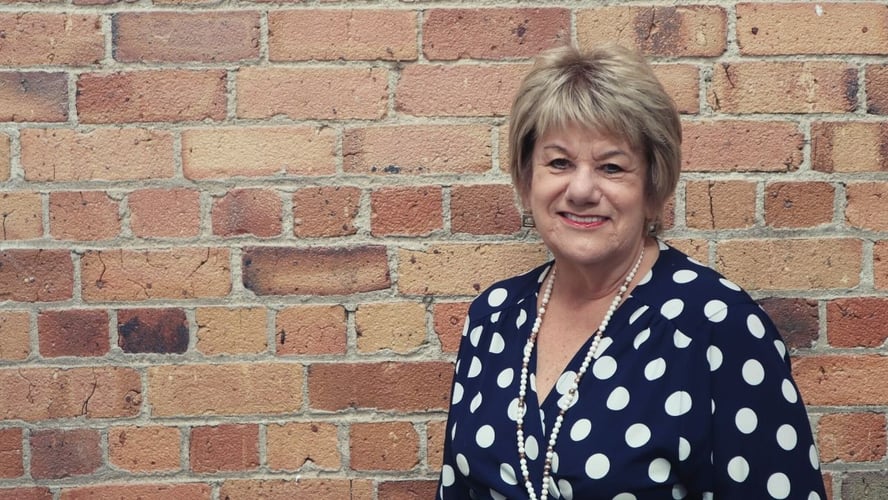Imposter Syndrome: Volume Two
.jpg?width=950&name=Imposter%20Syndrome%20Volume%20Two_%20Blog_Image%20(1).jpg)
There’s a good reason why The Icehouse regularly reports on Imposter Syndrome. We hear about it a lot on-programme, and throughout our conversations with prospective participants, past alumni, and the wider Kiwi business community.
.jpg?width=1920&height=1081&name=Imposter%20Syndrome%20Volume%20Two_%20Blog_Image%20(1).jpg)
Amid a burgeoning body of research and academic study aimed at determining the depth of the problem, we know it’s out there and it’s real. ‘I’m just working through it,’ is a common on-programme response. ‘I’m just doing this before I get found out,’ is another.
So what is it, how do you identify the types of people who may suffer from imposter syndrome, where does it come from and, most importantly, what can you do about it if you’re suffering its effects?
The University of Auckland asks, ‘Do you find yourself constantly doubting your achievements, or fearing that you will be exposed as a fraud? [Imposter syndrome] is a wide-spread but rarely discussed condition, that centres on a person’s feelings of shame or fear because they feel they don’t deserve their personal achievements.’
The reassuring news is that you’re in good company. According to Dr Valerie Young, there are five imposter personality types; the expert, the perfectionist, the soloist, the natural genius and the Superhero.
“I don't know if I will ever overcome it. Every groundwork that every generation makes is a step towards making it easier, but I think we're still not quite there. Sometimes I will walk into a boardroom, and I doubt my ability, but I have a lot of ability. So, it's just in your head,” says Kirsty Naish from Sidekick Ashburton and a Taking Your Business Forward alumni.
“There's all that fake it till you make it or that bluff. I've got a business mentor. He always says to me, you don't have to know everything, it's okay to admit that to a client or to someone as well… You just can't know everything.”
Psychologically, there’s some evidence to suggest that imposter syndrome can manifest as a result of multiple factors. Of course, there’s the aforementioned personality types, but could family and environment also play a part?
“I grew up in a humble home. My father was a plumber, my mother was a nurse. My whole family are trades people or the traditional 1960s family. Nobody really was an entrepreneur, nobody's done anything that I've ventured into,” says Johnnie Saunders, Founder and Managing Director of NZ Proud and an Owner Manager Programme (OMP) alumni.
If imposter syndrome is about self-doubt (even in areas where you’re brilliant), creates stress and anxiety and one hundred other limiting emotions (complete with the debilitating effect of letting those emotions take grip), you’re not alone.
“I did suffer a little bit from this whole impostor syndrome. It seems to be spoken about a lot more now. I'd never known what the hell it was until I went to The Icehouse! It is something that you do struggle with as a business owner in New Zealand. You end up holding a pretty privileged position… but I think I've come to accept that I've earned the right,” says Hamish White, owner of NOW and an OMP alumni.
So, what can be done? Talk to people you trust? Challenge it head-on? Simply accept it and move forwards? If it’s really beginning to affect you, it’s time to fight back. Professional learning and personal development can help.
“I wasn't aware of it up until probably a couple of years ago, when I took on a business mentor. And then he started to say, ‘hey, just chill out, you're actually really good at what you do’. I'm never going to shake it. I know that personally. Some people will be really good at overcoming it. It is something I'll eat every day,” says Johnnie.
“You’re overwhelmed a little bit by it. And I've suffered from it a lot. The OMP experience… I entered that with this huge weighted amount of impostor syndrome but OMP really taught me that it's very normal. Every business owner has it, but it's actually an emotion that sharpened my senses.
OMP helps participants realise that imposter syndrome is normal, as all business owners and leaders have similar challenges, wins, opportunities and doubts.
“From an Icehouse perspective, it’s important that we acknowledge that imposter syndrome is “there” for a lot of our customers. The environment that we try to create is one that enables them to embrace the experience, build their confidence, learn a lot, leverage their investment, and recognise that this is real for them,” says Liz Wotherspoon, The Icehouse Chief Executive.
For information on programmes, workshops and business coaching services from The Icehouse, click here.
For more business ownership and leadership advice, check out more of our resources.
Icehouse Alumni? For exclusive content on Icehouse Central, register now.


